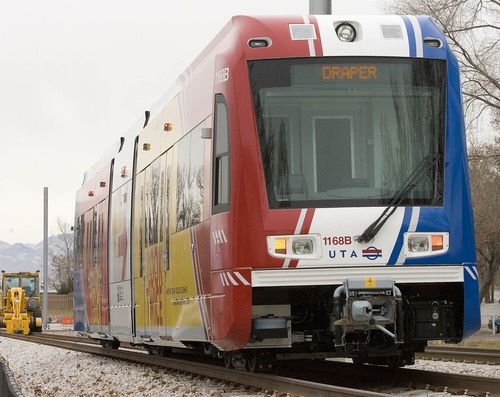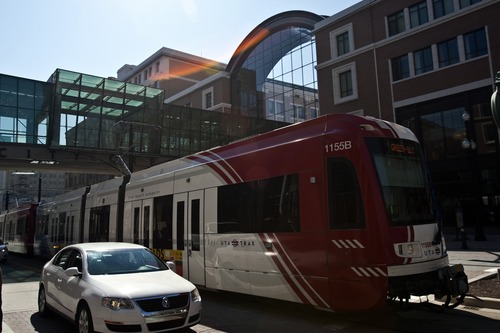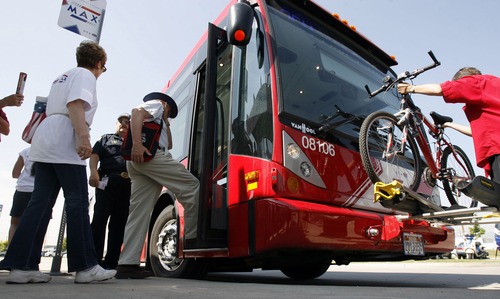This is an archived article that was published on sltrib.com in 2014, and information in the article may be outdated. It is provided only for personal research purposes and may not be reprinted.
The Utah Transit Authority is giving its executives partial credit when it comes to bonuses. The board overseeing the train and bus agency gave final approval Wednesday to the broad outlines of its 2014 incentive program, deciding employees reached 73 percent of its goals and therefore will be eligible to split $1.93 million.
Even though the agency didn't reach all of its goals last year, the bonus pool still exceeds the $1.74 million distributed to employees in 2013, when all of the goals were met, because UTA has expanded the number of workers eligible for a bonus.
The board unanimously approved the bonus pool without comment, though board Vice Chairman David Burton later told The Salt Lake Tribune, "We believe incentives bring results and we are after results. It's demonstrated time and time again that it works."
Bonuses are tied to five goals and UTA missed two of them.
Ridership increased by 3.1 percent, while the goal was 4 percent. And the tax subsidy per ride hit $3.69 when the board wanted it to be $3.52 or less. The agency reached its goals on raising money, maintaining its equipment and safety.
The UTA Board's Finance & Operations Committee, led by Chris Bleak, initially wanted to give executives 90 percent credit for all of its goals, but following a Salt Lake Tribune story in April, the full board asked the committee to reconsider.
It came back with a recommendation that executives get no credit for the ridership goal and two-thirds credit for the investment per-rider goal.
That Tribune story noted the missed goals and reported that UTA doubled its bonus program in 2013 the same year it sought a sales-tax hike to restore bus service cut during the recession. The agency says the increase merely restored cuts to the bonus program because of a tough economy.
Now that the board has identified the size of the bonus pool, it will turn its attention to how much to give to each eligible employee. Under a revised policy, the board must vote in an open meeting on any executive getting a bonus of more than $8,000. Such votes are expected later in the year.
Nearly 800 managers are eligible for a bonus, while 389 people were in the incentive pool in 2013.
UTA spokesman Remi Barron said the expanded program is "an effort to further promote an agency-wide culture of exceptional performance," noting that UTA's overhead is about 12 percent, while the national average is 16 percent.
Top bonuses in 2013 reached $30,000 for General Manager Michael Allegra and General Counsel Bruce Jones.
Five other top executives received bonuses of $29,918. Their total compensation packages, including health insurance and retirement benefits, ranged from $220,000 to $346,000.
UTA says the bonus program helps attract top talent and reward performance.
But it has its detractors. Among them are retiring Rep. Janice Fisher, D-West Valley City, who complained about the bonuses at a time when the agency is seeking more support from tax collections.
"If they have enough money to pay bonuses, that money should be put pack into the service first," she said in April.
mcanham@sltrib.com Twitter: @mattcanham







